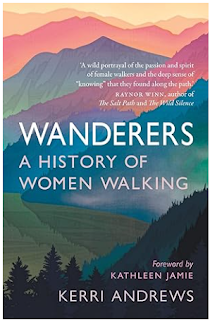'Much of the history of the North Pole is about men who were not willing to learn from their predecessors' mistakes,' writes Erling Kagge, Norwegian explorer and author of The North Pole: The History of an Obsession. There, I have (or, he has) summed up the book for you - but perhaps stay a while, as the meat of this fascinating book is in the detail.
Kagge is a Norwegian explorer with an impressive track record - the first to reach the ‘three poles’ (North, South and the summit of Mount Everest), and author of several well-known books. In this work, he partly focuses on his record, set in 1990, of becoming the first to reach the North Pole on skis, without any mechanical assistance or animal power, using it as a framework to paint a wandering history of polar exploration.
For me, a work that takes a place, time or topic as its central character - in this case, the North Pole - is true escapism, the epitome of non-fiction, seamlessly combining learning and enjoyment, all the while making the reading experience flow, linear like a novel. Kagge explores a huge variety of sources - literary, historical, zoological, geographical and more. From the world's earliest maps by Ptolemy and Mercator, to the golden age of British polar exploration towards the end of the 18th centruy; from Aristotle and Socrates to Columbus, James Cook, Fridtjof Nansen and Roald Amundsen, the character list is numerous and wide-ranging.
Undoubtedly, the history of polar exploration is colourful, inventive and entirely absurd at times. For many years, the predominant theory about the Arctic Ocean was that it was ice-free, if only one could reach far enough - so the attempts in the endless race to be the first to reach the North Pole, more often than not, ended in disaster. It is mind-bending how many journeys were taken by explorers across the globe - sometimes in the name of science or the advancement of human kind, but more often hubris (whether openly admitted or not) - and even more incredible to learn about the disastrous outcomes of most of them. Attempts were made by water, by air, by ice: creativity in this race knew no bounds.
Another fascinating aspect is where funding for these journeys came from: royal support, family fortunes or media moguls would often back explorers to mount an expedition, with exclusive rights for coverage (as we know, disaster sells). If explorers survived their ordeal, but failed in what they set out to do, they would be shunned. If they died on their journey, they would become heroes. For almost three centuries, the public was entirely fascinated with the life-or-death drama of polar exploration, and only towards the mid-20th century did this begin to fade. Though, as this book shows, some of that fascination is still very much alive to this day.
What's more, to this day, we don't know for sure who, in fact, was the first to reach the North Pole by any means - historical records are dubious at best, and there were no photographs or tangible evidence to prove one's achievement.
The history in itself is fascinating, but I did find that Kagge's reflections often seemed to mirror the very things he poked fun at - the machoism of explorers, the national pride, the search for improbable challenges, the need to win and impress. He often generalises about some explorers and nationalities, and romanticises others like sages. It's a touch black and white, which becomes apparent in the specific explorers that he chooses to dwell on, and which explorers he chooses to gloss over (I was personally offended by the lack of detail about the Franklin expeditions, for example).
There is also an undercurrent, a suggestion throughout the book, which feels a bit 'woe is me', that polar explorers overwhelmingly have daddy issues: most of the adventurers he dwells on (including himself) were abandoned by their fathers, were left by them quite young, or were simply ridiculed by them, spurring them on with a burning need to prove themselves.
I won't dwell on the fact that I think only two or three women are mentioned in the book in total.
This book is romantic, but through male perspective-tinted glasses. If you can put that aside and simply enjoy the history presented - which is well done indeed - this will prove to be an enjoyable, educational read.











